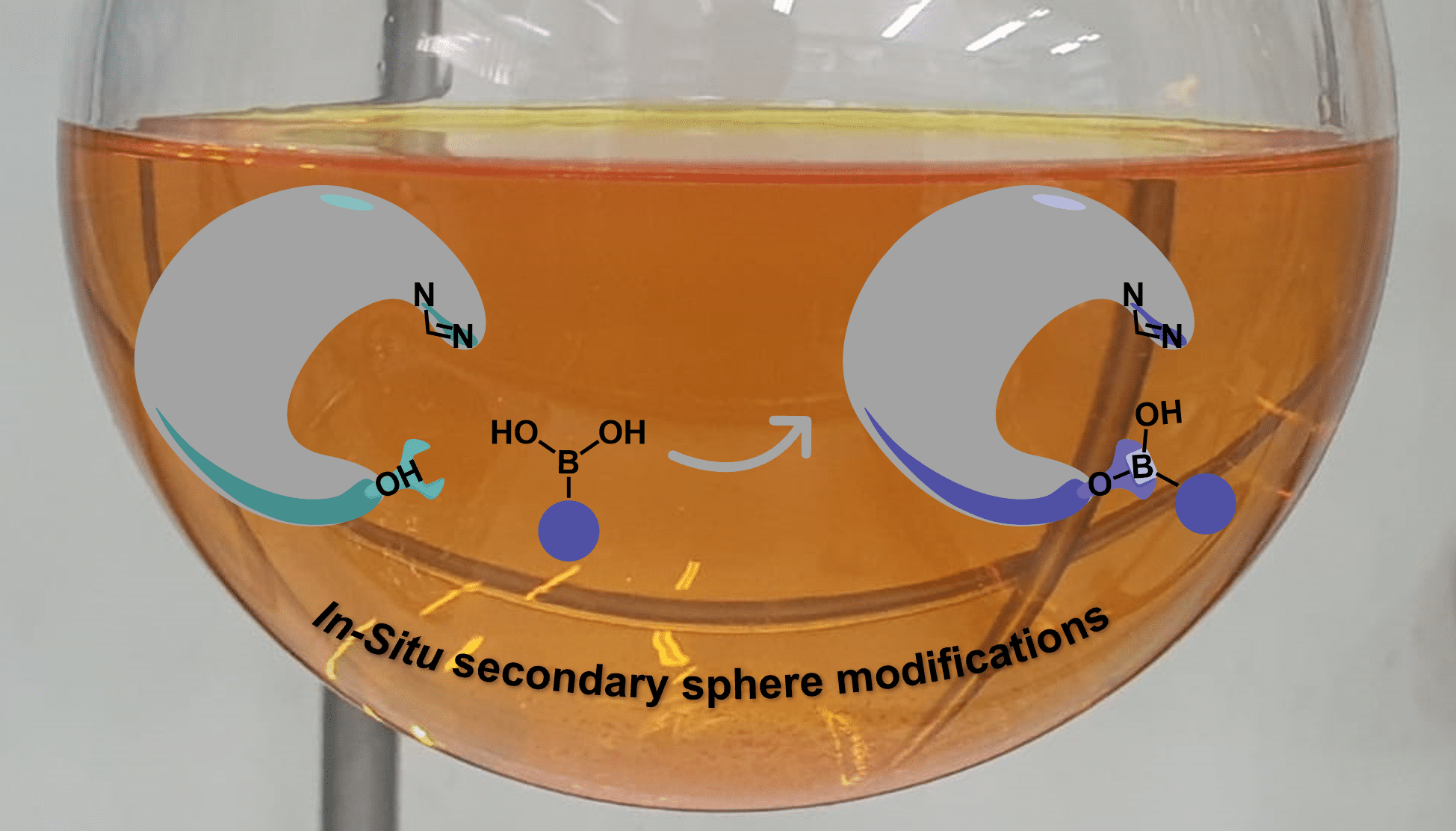
Strategic design of catalysts through in-situ dynamic interactions
Recently, we introduced an approach in which we modify catalyst’s structure by in-situ dynamic covalent interactions. The binding of the catalyst with small molecular modifier under reaction conditions enables the tuning of structural features of catalysts and thus, will enable us to control the activity of these catalysts. The proposed methodology will overcome and faciliate traditional optimization processes (of catalyst and other reaction components) which consume resources, time, and exert synthetic effort. As proof-of-concept, we implied boronic acids as secondary-sphere modifiers of N-heterocyclic carbenes (NHC) to catalyze benzoin condensations, our recent work that has been published in Nature Chemistry is emphasizing how mechanistically driven optimization of catalytic homo-benzoin condensations could improve selectivity of products.

Powered by Eventact EMS